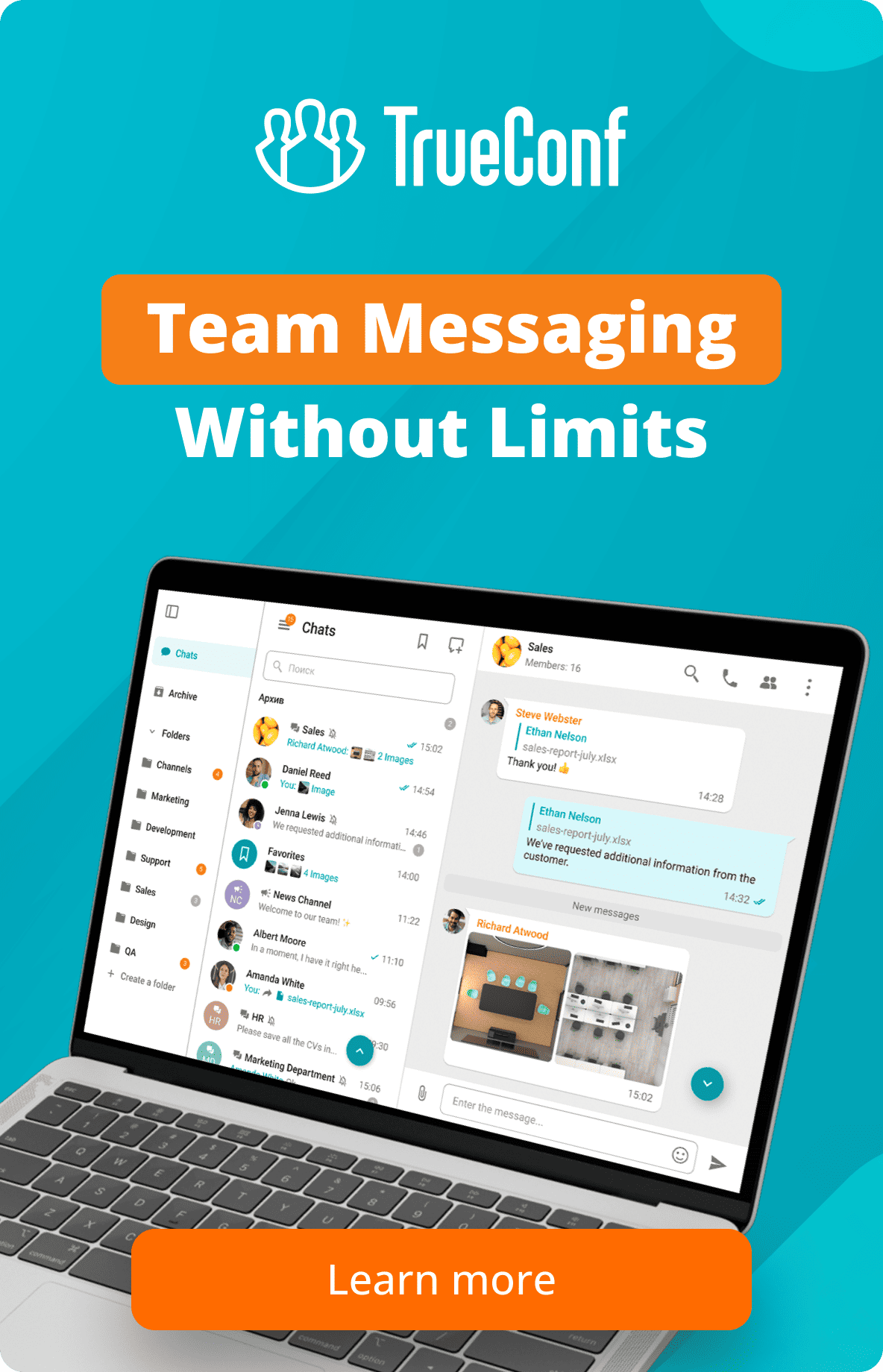Video conferencing security: How TrueConf protects your privacy
The coronavirus outbreak has pushed businesses and government institutions to move any in-person activities online. With a third of humanity now in lockdown due to the pandemic, video conferencing systems have surged in popularity for personal and professional events. As more and more people prefer to use virtual meetings for their internal and external organizational communications, we believe it is our responsibility to provide a clear explanation of how we protect your video meetings and personal information.
Cloud-based video conferencing systems largely depend on an Internet connection and third-party security measures, creating vulnerabilities for enterprises adopting the technology. TrueConf offers a self-hosted collaboration platform that operates totally offline in your LAN/VPN network. With TrueConf, you are free to take full advantage of the on-premises video conferencing solution, while all communications, meeting recordings and personal data stay within your company network under your supervision. You can learn more about how we protect your information here.
Video Conferencing Security Measures Comparison
| TrueConf Server | Other cloud-based VC solutions | |
| Media streams protection | In addition to the fact that all media streams are encrypted using AES-256 and delivered over secured TLS connections, the video conferencing server is hosted within your company’s premises. Third-party access to the server is restricted. | During multipoint conferences, video and audio data are processed unencrypted on the servers of cloud providers and can be accessed by service employees. |
| User data protection | User accounts are safely stored within your company’s environment. Only your system administrator has access to users’ personal data. | Personal data can be leaked due to cloud service vulnerabilities. Cloud service employees can also have access to the databases. |
| Meeting ID protection | The server requires users to authenticate with a login and password before joining the meeting by following a link with a meeting ID. | Weak meeting IDs are vulnerable to enumeration attacks.
PIN codes are usually delivered along with meeting ID within the same invitations which makes them useless. Accounts with login and password are usually available for hosts only. |
| Data center overload | Your server resources are not shared with third-party users and companies. | There is no guarantee of service quality.
Degraded performance and low audio/video quality during peak hours. |
| Offline operation | No internet connection required for a video conferencing server to operate. | Permanent internet connection required for every user even within the corporate network. |



Follow us on social networks